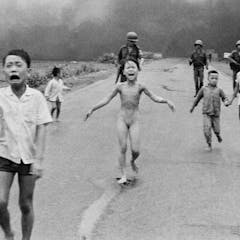
American University School of Communication

Based in Washington, D.C., the American University School of Communication offers a comprehensive approach to media practice, production and research, with bachelor’s, master’s, doctoral and certificate programs in Communication Studies, Film and Media Arts, Games, Journalism, and Public Communication.
Links
Displaying 1 - 20 of 52 articles

Starting in 1950, as the fear of communist subversion spread throughout America, McCarthy launched hearings that were based on scant evidence and overblown charges.

Imprecision in election polling has long been recognized. But advance polls are still useful in recognizing trends in voter preferences, and candidates’ weak points.

The unusual candidacy of former President Donald Trump has made election polling especially appealing, more than a year from the election. But consumers beware: Those polls may be wrong.

Polling for the 2022 midterms was more accurate than the dramatically wrong predictions of 2016 and 2020, leading one pollster to boast, ‘The death of polling has been greatly exaggerated.’

Will some polls misfire in prominent races in the 2022 midterms? Probably. Will such errors be eye-catching? In some cases, perhaps. Will the news media continue to tout polls? Undoubtedly.

Washington Post reporters Carl Bernstein and Bob Woodward broke stories about the Watergate scandal that helped unravel Richard Nixon’s presidency. But they were not the sole force to bring him down.

The ‘Napalm Girl’ photo is much more than powerful evidence of war’s indiscriminate effects on civilians. It also shows how false assertions can get traction in the media.

Addressing American domestic radicalism will require new ways of thinking about the nation’s problems, and new ways of solving them.

A task force of polling experts found surveys notably understated support for Donald Trump, both nationally and at the state level. Here’s what may have gone wrong, according to a polling historian.

Stung by their failure to accurately predict the outcome of the 2020 presidential election, pollsters collectively went off to figure out what went wrong. They have yet to figure out what or why.

The New York Times gave in to White House pressure and did not publish crucial information about an impending US-backed invasion of Cuba. It’s an old story, much repeated – but it’s wrong.

Language affects behavior. When words champion aggression, make violence acceptable and embolden audiences to action, incidents like the insurrection at the Capitol are the result.

Setiap kata punya konsekuensi. Penelitian beberapa dekade mendukung
argumen bahwa pidato Trump kemungkinan besar mendorong massa pendukungnya sehingga terjadi pemberontakan di gedung Capitol AS.

Words have consequences. And decades of research supports the contention that Donald Trump’s words could in fact incite people to mount an insurrection at the US Capitol.

Pollster Bud Roper once said of his field that “a good deal more than half is art and … less than half is science.” After the 2020 polls got a lot wrong, is it time for more candor from pollsters?

Les sondages prédisaient une « vague bleue » qui ne s’est pas concrétisée.

Polls predicted a ‘blue wave’ that didn’t materialize.

An expert on the history of polling has a first take on how pollsters did this year.

Polling is an imperfect attempt at providing insight and explanation. But the public’s desire for insight and explanation about elections never ends, so polls endure despite their flaws and failures.

Polling shows Joe Biden with a large lead over Donald Trump nationally in the presidential race. But there are many ways that presidential race polling has gone wrong in the past, and could do so now.
